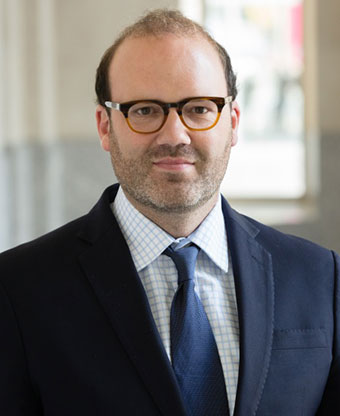SJU graduate to discuss new book about South Sudan
January 15, 2019
By Connor Kockler ‘22

Zach Vertin ’05
A Saint John’s University graduate had a front row seat to the creation and subsequent development of the world’s newest state, South Sudan.
Zach Vertin ’05 will talk about the African country and his debut book, A Rope from the Sky: The Making and Unmaking of the World’s Newest State, from 5-6:30 p.m. Wednesday, Jan. 23 in the Founder’s Room (room 170), Quadrangle Building, SJU.
Vertin will share his personal experience of how South Sudan formed and collapsed into violence, with perspectives from both the diplomatic side in Washington D.C., and on the ground in South Sudan. He will give a sense of what issues arise, and what can go wrong, in a brand new state.
The Minneapolis Star-Tribune newspaper reviewed the book recently, and said it was panoramic and absorbing.
“A masterful account of the birth and near-death of a nation,” wrote reviewer Hamilton Cain. “Vertin seams together a staggeringly complicated puzzle, re-creating the street battles and high-level diplomacy that has informed South Sudan’s infancy. But much of the book’s texture comes from beautiful portraits of the South Sudanese people. An invaluable contribution to the literature of global politics.”
Originally from Breckenridge, Minnesota, Vertin graduated magna cum laude from SJU with a degree in philosophy, and received a master’s degree from Princeton University’s Woodrow Wilson School of Public and International Affairs.
After working as a senior analyst for the International Crisis Group in New York and in the Horn of Africa, he became a senior advisor to the U.S. Special Envoy to Sudan and South Sudan, which spearheads American policymaking on behalf of the State Department and the White House.
In these roles Vertin regularly engaged heads of state, foreign diplomats, mediators, senior Obama administration officials and leading figures such as former President Jimmy Carter and UN Secretary General Kofi Annan.
South Sudan was established in 2011 following decades of conflict.
After the African state of Sudan gained independence from the British Empire in 1956, it inherited long-standing tensions between the state’s northern and southern regions. The north, larger in both population and size, is mainly Muslim, while the south is populated by Christians and those who practice traditional African belief systems. Two civil wars were fought over the autonomy of the south, with millions of people killed or becoming refugees.
Following the end of the Second Sudanese Civil War in 2005, South Sudan gained independence from the north in a referendum six years later, with the support of the United States. However, this was not the end of conflict, as a civil war within South Sudan itself and resulting humanitarian crises continue to plague the state.
He is now a lecturer of international affairs at Princeton University and a Visiting Fellow at the Brookings Institution’s Doha Center.
This event is sponsored by the Eugene J. McCarthy Center for Public Policy and Civic Engagement at Saint John’s University. The McCarthy Center facilitates opportunities for collaborative scholarship, creative and integrated learning through programming and activities on and off campus and in collaboration with various other departments and organizations.
